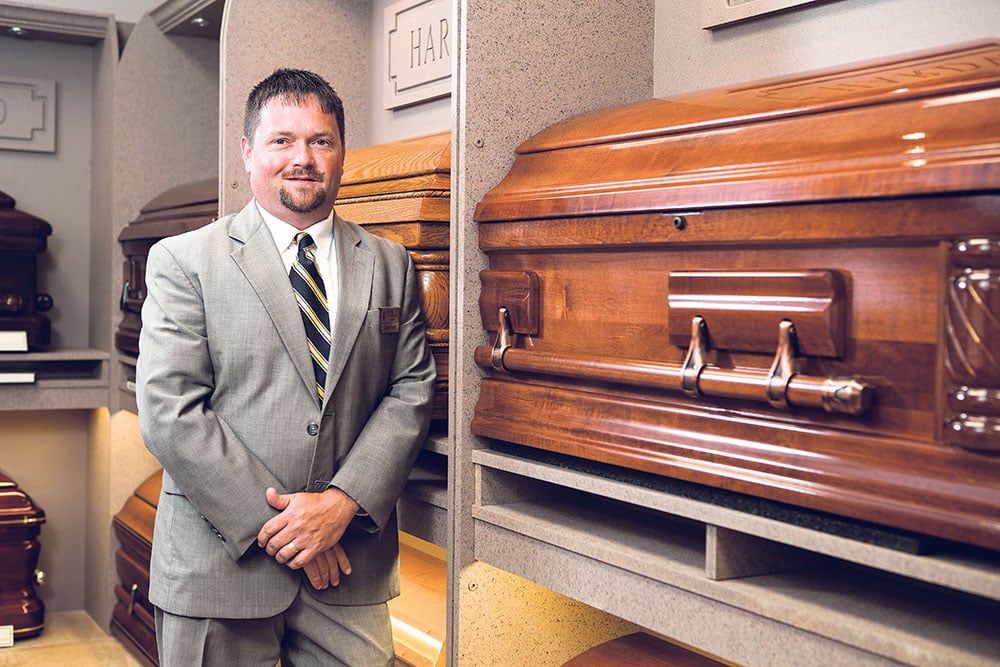Losing a liked one is undoubtedly one of the most challenging experiences we face in life. During such emotionally trying times, a compassionate and educated guide can make all the difference. This is where a funeral director steps in, providing help, expertise, and a helping hand to navigate the complexities of arranging a significant farewell. In this complete guide, we will delve into the important function of a funeral director, uncovering their obligations, abilities, and the invaluable assistance they provide during moments of grief.
A Comforting Presence in Times of Grief
When a household is grieving, the compassionate presence of a funeral director can provide a way of comfort and assurance. These professionals are educated to approach their responsibilities with empathy and sensitivity, understanding the distinctive wants and desires of every household they serve. Their ability to supply solace and steerage throughout an emotionally charged interval is a trademark of their function.
Arranging and Coordinating Funeral Services
One of the primary obligations of a funeral director is to facilitate the planning and coordination of funeral services. From choosing a suitable venue to arranging transportation and overseeing the logistics, they ensure that all elements of the service run easily. They work intently with households to create a customized and significant tribute that honors the life of the deceased.
Legal and Administrative Support
Navigating the legal requirements and paperwork related to a demise could be overwhelming. Funeral administrators are well-versed in the legalities and administrative procedures concerned in arranging a funeral. They help households in acquiring needed permits, certificates, and documentation, alleviating the burden throughout an already challenging time.
https://www.jamesgilesandsonsltd.co.uk/ in Funeral Customs and Traditions
Different cultures and religions have various customs and traditions related to funerals and memorial services. A expert funeral director possesses a deep understanding of those numerous practices, enabling them to tailor arrangements to align with the family's cultural and religious beliefs. This expertise ensures that the service is carried out in a manner that reflects the needs of the departed and their household.
Financial Guidance and Budgeting
Funeral costs can add up shortly, and many households may be unsure about budgeting for such bills. Funeral administrators offer financial steering, presenting varied choices and packages that accommodate different budgets. Their transparency allows families to make knowledgeable decisions that honor their liked one's reminiscence without unnecessary financial strain.
Support in Grief Counseling and Aftercare
Beyond the immediate logistics of a funeral, funeral directors often lengthen their assist to include grief counseling and aftercare services. They connect households with resources and professionals who can present emotional support through the mourning course of. This holistic method underscores the genuine concern funeral administrators have for the well-being of the bereaved.
Coordination with Third Parties
A funeral involves varied third parties, similar to florists, caterers, and musicians. Coordinating these elements seamlessly falls within the realm of a funeral director's responsibilities. By liaising with these distributors, they ensure that each element of the service aligns with the family's wishes.
Conclusion: Guiding Families with Compassion

The role of a funeral director transcends the logistics of arranging a funeral; it embodies a calling to provide solace, understanding, and steering throughout instances of loss. Their expertise in navigating the complexities of planning, legalities, and cultural considerations offers households the area to grieve and honor their loved ones in a meaningful way. As we reflect on the position of a funeral director, we acknowledge their invaluable contribution to easing the burden of bereavement and fostering an setting of care, compassion, and help..
